Tokyo 2020 Paralympics
The inspiring stories of the refugee para athletes taking part in Tokyo Paralympics
Overcoming the most difficult of situations, a 6-member refugee para athletic team will head to Tokyo and seek to make a difference.
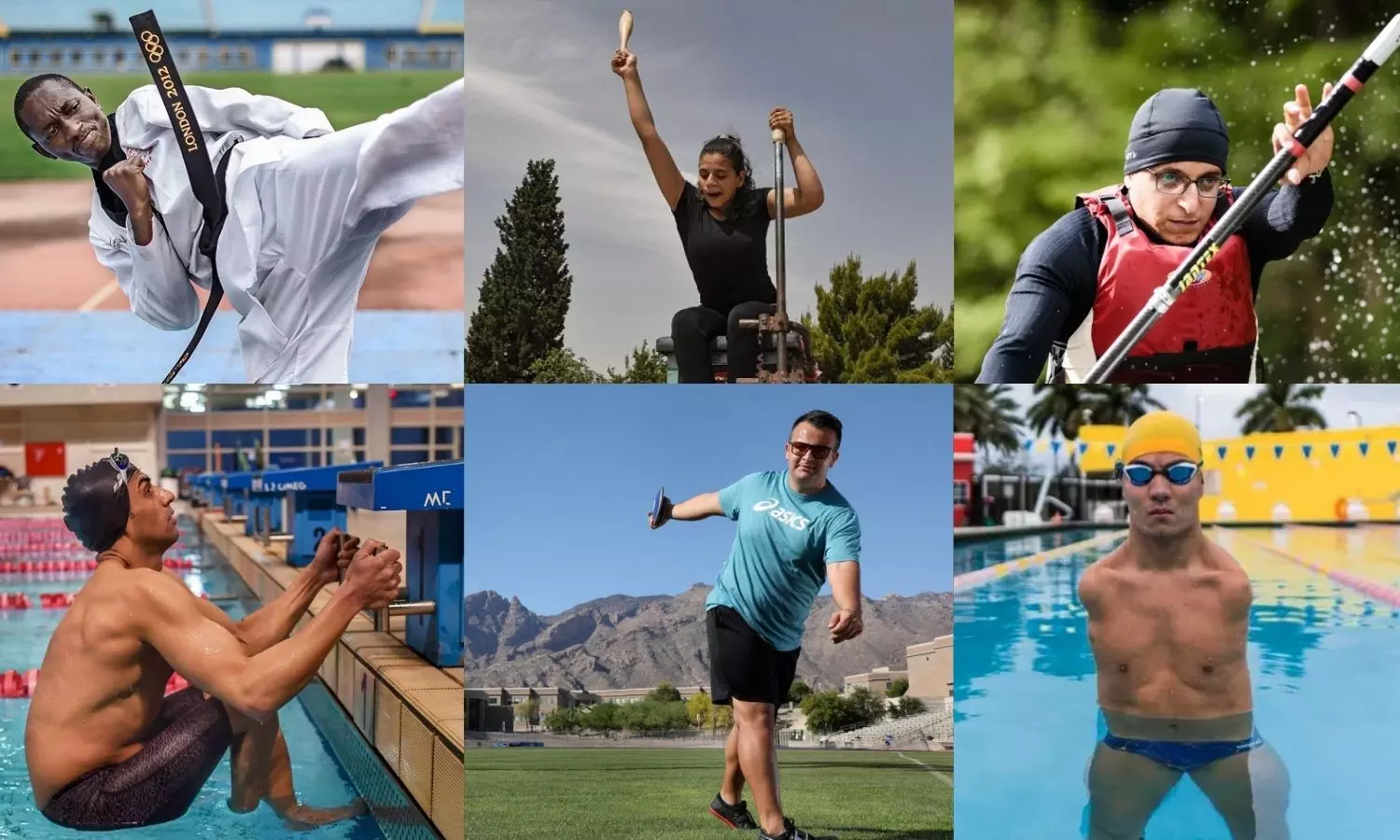
The Refugee team for Tokyo Paralympics
While the story of every para athlete is one of immense inspiration, the tale of refugee para athletes is one that instills people with a lot of faith, knowing how they have braved all odds to stand out today.
The International Paralympic Committee (IPC) will be sending their second Refugee team of para Olympians, for the second edition in a row, after their debut appearance at the 2016 Rio Olympics. While it was only a two-member squad at Rio, the Tokyo Paralympics will see six para refugee athletes setting sail for the Japanese capital.
At the Tokyo Paralympics, this 6-member refugee para athlete contingent will participate in an array of sports - Para Swimming, Para Athletics, Para Taekwondo and Para Canoe. The list of inspiring people also includes the first woman para athlete - Alia Issa, as well in the mix.
Victim to the most unfortunate of situations, para athletes hailing from a refugee background serve to inspire with their stirring stories - showing their incredible journey and making people realize that just about anything is possible if you dream enough, nothing - no disability, no crisis can hinder your growth.
Meet the refugee para athlete squad for Tokyo Paralympics:
Parfait Hakizimana - Taekwondo
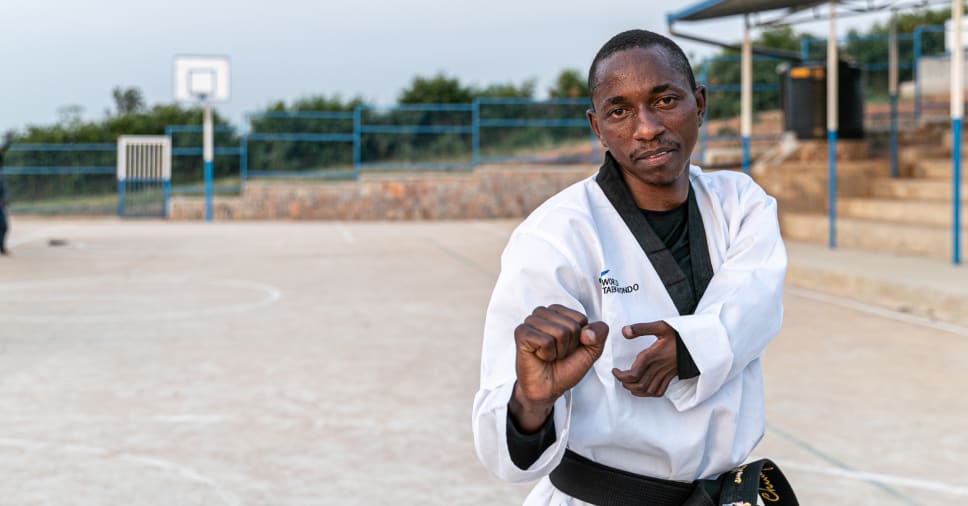
Escaping the civil war in Burundi, East Africa, Parfait Hakizimana will become the first para Olympian to participate at the Tokyo Olympics straight from the refugee camp where he stays in Rwanda.
Living in war-torn conditions in Burundi, Parfait, who was born in 1988, had to undergo a lot of emotional trauma after having lost his mother to gunfire in 1996 and suffering a fatal gunshot wound in his left arm after the camp where they were living came under attack. Unfortunately, the injury was severe and it left his arm disabled permanently.
Seeking to rehabilitate, Parfait stumbled onto sports and it was at 16 years of age when he finally came across taekwondo.
"I really liked it. It saved me and lifted my spirits." - Parfait Hakizimana
Even as taekwondo became a ray of hope for Parfait, he lost his father to a motorcycle accident, making him undergo further trauma. Additionally things grew restless in Burundi and he had to flee the country and move to Rwanda and eventually set up a taekwondo camp in the Mahama Refugee Camp, where he currently stays.
At the Tokyo Paralympics, Parfait's only aim is to return with a medal - a fitting prize for all the years of toil and hard work. The journey was full of roadblocks but Parfait, with his grit and determination and the support of his coach, Zura Mushambokaz, has come a long way now and the medal is the dream waiting to be realised.
Anas Al Khalifa - Canoe
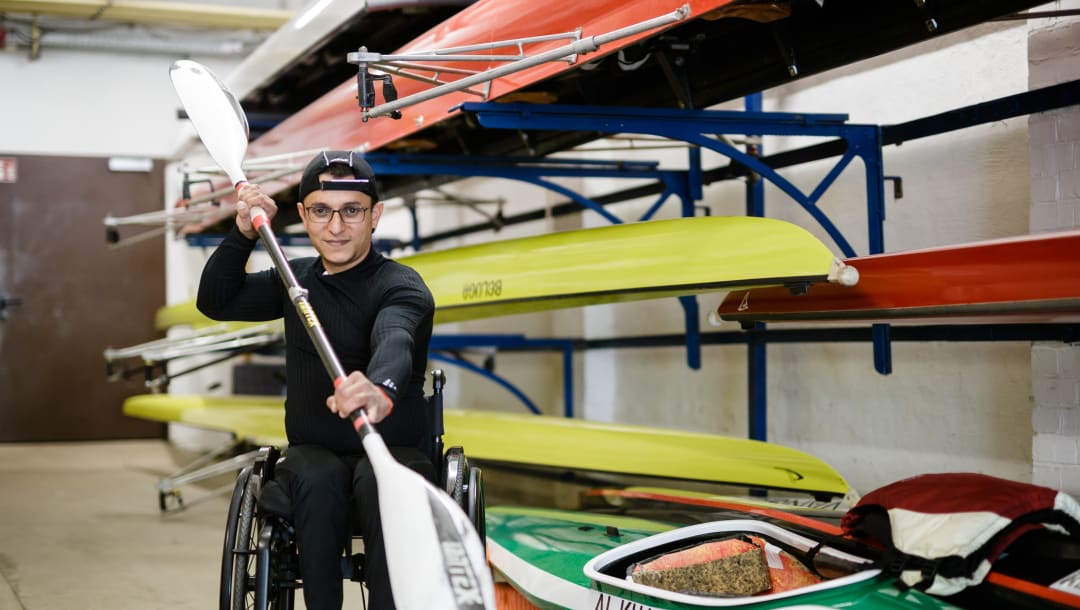
Born in Hama, Syria, Anas Al Khalifa's childhood was also spent in a disturbed manner with him having to stay in refugee camps, waiting for a safe tomorrow everyday. Although his early years were still normal, the Syrian war in 2011 took a toll on Anas and his family. Left with no option, Anas decided to make his way to Germany so that he could earn and provide for the house while his brother decided to stay back in Syria with those who made it.
However, in 2018, Anas, who was working in a two storey building in Germany, slipped and fell on his back and the fall proved to be fatal as he harmed his spine resulting in incomplete spinal injury rendering him with minimal sensation in the lower limbs of his body.
Despair greeted Anas, who was anyway away from his family and canoeing happened in the most sudden of ways. Encouraged to take up sports to rehabilitate, Anas found his way to Ognyana Dusheva, a former Olympic medallist from the 1988 Seoul Olympics at the SV Halle Para Kanu.
"I saw a scared young man. You could see it in his eyes. He was so unhappy. But looking at his body, his hands and shoulders, I could see how strong he was, how much potential he had." - Ognyana Dusheva
Ognyana, whose name translates to 'fire' helped light the spark in Anas again and supported him as he decided to take up canoeing - improving greatly with every time he paddled. Meanwhile, more tragedy befell Anas as his brother got shot and died, devastating Anas further and leaving him demotivated.
However, when Anas heard that he might get picked for the Paralympic Refugee team, he saw the silver lining and realized his brother will be happy for him as well. Therefore, the Tokyo Paralympics for Anas will be for a greater purpose as he will participate in it not only for himself, but also his brother and his parents who he wants to make proud with his achievements.
Alia Issa - Club Throw
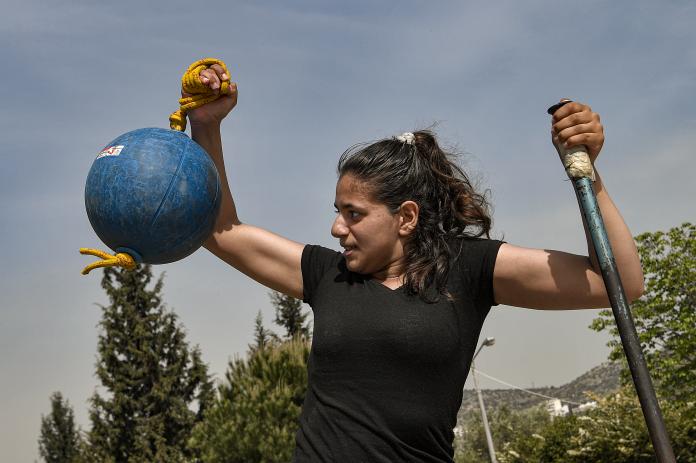
Spurred on by her father, who made her dream big, Alia Issa is ready to become the first female paralympian from the Refugee team. At just four years of age, Issa's life took a turn for the worse when she got smallpox and had to be hospitalized. All was well but Issa ran a dangerously high fever that caused brain damage and has permanently left her in a wheelchair and her speech is no longer smooth. After a childhood of facing discrimination and bullying due to her condition, Issa found sports as her refuge.
Having fled the difficult situation in Syria, Issa's father had moved to Greece where Issa was born in 2001. Soon, her family became subject to a lot of tragedy with Issa's sister getting diagnosed with cancer, followed by her father as well getting affected by the same disease and eventually succumbing to it, when Issa was just 16.
After overcoming depression, Issa, stumbled upon club throw after trying a few other sports. Although her start wasn't perfect, her coaches soon saw her power and potential when she threw the club backwards and Issa has a personal record of 16.40 m at the World Para Athletics Grand Prix in Nottwil, Switzerland in May, 2021.
The Tokyo Paralympics is the next goal for Issa, who is determined to be a figure of inspiration to girls born with disabilities and show that nothing really is impossible if you have the will for it.
Ibrahim Al Hussein - Swimming
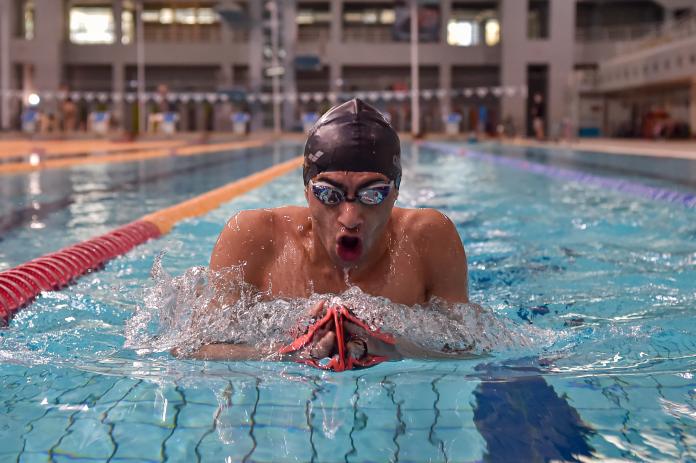
Ibrahim Al Hussein cannot imagine a life without sports. Having been a thoroughly active kid in Syria, Ibrahim hailed from a sporting family in the first place as his father was also a 2-time medallist at the Asian Championships. Taking to swimming as early as when he was 5, Ibrahim spent his mornings at school, his afternoons at the pool and the evenings went in judo practice - Ibrahim's life was full and active and there was nothing much to complain about.
However, growing up in Deir al Zor, Syria got risky just as the Syrian crisis broke out, causing turmoil in the life of Ibrahim. Watching the crisis unfold in 2011, Ibrahim's parents and 13 of his siblings left for a safer place and Ibrahim chose to stay back. One day, one of Ibrahim's friends was leaving his house to return to his own home when a sniper shot his friend. Instead of watching helplessly, Ibrahim leapt into help his friend, well-knowing the dangers of being shot himself in the gamble.
But as fate would have it, just as Ibrahim stepped out to help along with a few of his friends, a bomb exploded on the street and cost the athlete his lower right leg and left his ankle severely damaged, putting his entire blooming sporting career in jeopardy.
"Going back into sport wasn't easy. It was a big challenge. But if you have a disability or whatever else you face, nothing should stop you from doing what you love." - Ibrahim Al Hussein
Following this mishap, Ibrahim's life was littered with difficulties and ultimately he made it to Greece where he could get proper treatment for his leg as well as get back to sports. Trying out wheelchair basketball initially, Ibrahim longed to swim once more and his wish was soon fulfilled.
At the 2016 Rio Paralympic Games, it was Ibrahim who was the flag-bearer for the Independent Refugee Paralympic team - an honour he had always desired. Although he didn't receive a medal on that occasion, Ibrahim hopes to change that in his second Olympic outing at the Tokyo Paralympics.
"We have a saying in Arabic. Do good and throw it in the ocean. One day it will come back to you." - Ibrahim Al Hussein
Having depended most of his life on the kindness of strangers who have helped him in the most dire of situations, an Olympic medal awaits now to honour the help he has been extended all his life, especially after his disability.
Shahrad Nasajpour - Discus Throw
It was because of Shahrad Nasajpour that the Refugee Paralympics team exists in the first place as it was the initiative of this Iran-born individual to push for a Refugee team for para athletes after seeing the Olympics also have a team at the 2016 Rio Games.
Born with cerebral palsy, Nasajpour was always keen on sports and had tried his hands at table tennis before people asked him to turn his attention towards athletics, which is when discus throw happened. Having had to leave Iran in 2015, Nasajpour moved to America and finally made his way to Buffalo, New York.
While in the 2016 Games, Nasajpour had the goosebumps when he walked with the flag in the closing ceremony, he could not get his best results there as he didn't get enough time to train but the 2020 Tokyo Paralympics promises to be a different experience.
During the lockdown period, Nasajpour kept his training going at full pace and geared up for the Games and now will be heading to Tokyo with medal dreams in his eyes.
"Be resilient in difficult times. You will hear a lot of No's on a regular basis, but don't take that No as an answer." He adds, "Try to find different ways to get to your goals and eventually you may get where you want to be."
Abbas Karimi - Swimming
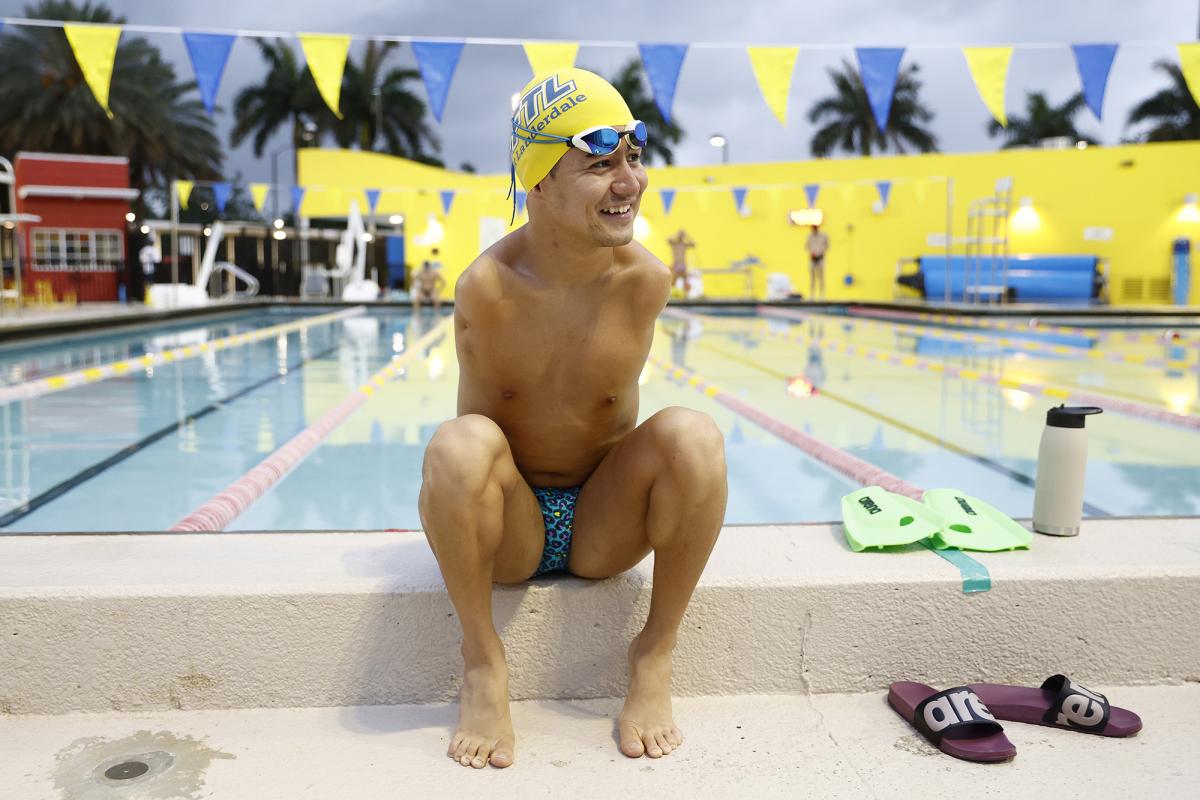
Abbas Karimi had an exceptionally difficult childhood given that he was born without both arms in a country that practises an unhealthy amount of discrimination - Afghanistan. Often the subject of ridicule, Karimi had anger issues as well for obvious reasons. He would do kickboxing and led a violent few years - often hitting other people up for being unkind to him.
"When you are born disabled without arms or legs or missing body parts in Afghanistan, you are considered hopeless," Karimi says, who has been taunted and called names all his life because of his disability.
It was with swimming that Karimi found peace as he realized that even though he does not have arms, he is gifted with legs and with its power alone, has it in him to conquer the world. Although his father wanted Karimi to look for a life within the walls of the mosque, Karimi had better plans for himself and he knew he had to leave the Taliban-threatened State at any cost, to succeed in life - and thus began his escape plan.
After a lot of hardships and juggling as many as 4 refugee camps, Karimi found his home in Turkey. Sports was a saviour for him and he knew if he went to the Paralympics and became a champion, it would mean everything.
"Swimming calms me down. It's like a shield for me, always protecting me. If I'm upset or anytime that I have any issues, I just get in the water and it relaxes me. Swimming saved my life. - Abbas Karimi
Currently, Karimi is aiming for a podium spot at the Tokyo Paralympics and becoming an image of inspiration to fellow para athletes and become a beacon of hope for as many as 80 million people who have been displaced, searching for refugee camps and asylum's, since the Second World War.
